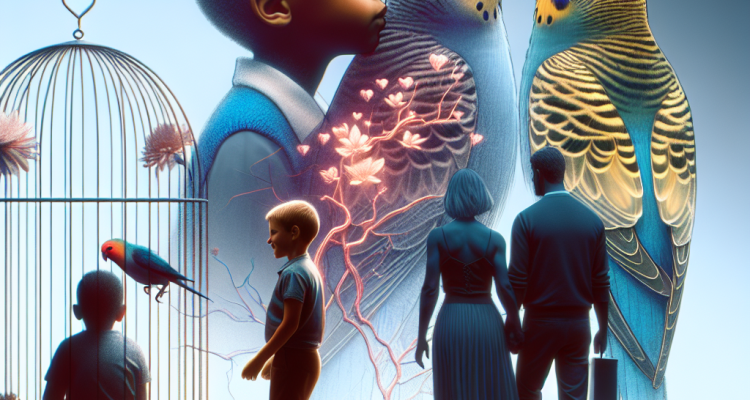How Childhood Experiences Influence Adult Romantic Relationships
Have you ever wondered why your romantic relationships seem to follow a certain pattern? The key to understanding this could lie deep in your past. Early experiences, especially the ones we have during childhood, play a massive role in shaping our adult romantic lives. Let’s dive into how childhood experiences influence adult romantic relationships.
The Power of Attachment Styles
Attachment styles are the blueprints for how we connect with others. The concept of attachment theory, pioneered by John Bowlby and later expanded by Mary Ainsworth, suggests that our early interactions with caregivers form foundational patterns that later affect our romantic endeavors.
- Secure Attachment: Those with secure attachment styles often had caregivers who were responsive and attentive. They grow up feeling valued and loved, leading to healthy, balanced romantic relationships.
- Anxious Attachment: If caregivers were inconsistent, a child might develop an anxious attachment style. As adults, they may crave closeness but fear abandonment, leading to clingy or overly dependent behaviors in romantic relationships.
- Avoidant Attachment: When caregivers are distant or unresponsive, children might develop an avoidant attachment style. As adults, they may struggle with intimacy and prefer independence, often keeping emotional distance from partners.
The Role of Family Dynamics
The dynamics within your family can also profoundly impact your romantic relationships. If you grew up in a household full of love, respect, and healthy communication, it’s likely you’ll bring those qualities into your own relationships. Conversely, a tumultuous home environment might steer you toward patterns of conflict and misunderstanding.
For example, witnessing a contentious parental relationship might make it harder to trust your own partner. On the flip side, seeing your parents navigate their disagreements positively can equip you with the tools to handle conflicts constructively.
Modeling Behaviors and Expectations
Children are keen observers and often model the behavior of their caregivers. If a child sees their parents expressing love and respect, they’re more likely to do the same. Similarly, if negative behaviors like manipulation or neglect are commonplace, a child might unknowingly adopt these in their own romantic relationships.
- Communication Styles: How did your parents communicate? Did they talk things out or did they argue constantly? The communication style you witnessed as a child can become the default mode you use with your partner.
- Conflicts and Resolutions: Did conflicts in your household end in shouting matches, or were they resolved calmly? Your approach to conflict resolution can mirror what you saw growing up.
- Expressions of Love: Was affection openly expressed in your family? Your comfort level with showing affection might be heavily influenced by your early experiences.
Self-Worth and Romantic Choices
Childhood experiences also shape our self-worth. If you were encouraged and validated as a child, you’re likely to have higher self-esteem as an adult. This confidence can lead to healthier romantic choices, as you’re less likely to settle for less than you deserve.
Conversely, if you faced constant criticism or neglect, you might struggle with self-esteem, leading to relationships where you feel undervalued or taken for granted. The quest for external validation can become a driving force in your romantic life, often at the expense of your happiness and well-being.
Healing and Moving Forward
Understanding the impact of childhood experiences on adult romantic relationships is the first step towards positive change. Therapy and self-reflection can help you break unhealthy patterns and build more fulfilling romantic relationships.
If you’ve found that your past experiences have led to unhealthy romantic choices, it’s not too late to turn things around. Healthy relationships are built on the pillars of communication, trust, and respect. By focusing on these aspects, you can transform your romantic life for the better.
Special Mention: Balancing Influences
While childhood experiences play a significant role in shaping our adult relationships, external influences also sneak their way into our romantic lives. For instance, exposure to certain kinds of media can subtly influence our perceptions and expectations. Speaking of media, if you’re curious about the kind of explicit content that can shape adult perspectives, check out some of the popular Telegram Channels for 18+ Content. A careful balance of awareness and critical thinking can help ensure that these external influences don’t negatively impact your relationships.
Conclusion: From Past to Present
In essence, our childhood experiences are like invisible handprints that guide our adult romantic relationships. By understanding these influences, we can navigate the complexities of love and build healthier, more satisfying bonds with our partners. Be kind to yourself as you examine the past, and take proactive steps to shape your romantic future positively. Remember, the path to a fulfilling romantic life often starts with a journey into self-awareness.
So, the next time you’re puzzled by your relationship patterns, take a trip down memory lane—you might just find the answers you need!
